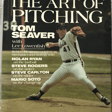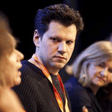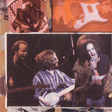Become a Creator today!Start creating today - Share your story with the world!
Start for free
00:00:00
00:00:01

A "Full Circle" Discussion with Mike Lemieux of HGTV's "Houses with History"
Graeme sits down with Mike Lemieux, co-owner of Full Circle Homes to discuss his passion for home restoration, whether You Tube is a good place to learn trades, and how an improv acting class can prepare you for anything. Mike also discusses the different ways that fans can engage with Full Circle Homes including shopping at Mayflower Mercantile.
Transcript
Introduction & Guest Welcome
00:00:35
Speaker
And welcome to the Crawling Around My Brain podcast. I'm your host, Graham Brown. I know it's been a hot minute since we've connected, but I'm really excited to have you all back this week. I have a great guest, Mike Lemieux from Full Circle Homes and also one of the stars from Houses with History on HGTV. It was a real thrill for me to sit down and talk to Mike about home restoration, his process, and what the Full Circle team has in store moving forward.
00:01:03
Speaker
I would also be remiss if I didn't give a shout out to my producer and creator of my intro song, Lucas Brown. So really appreciate his assistance in making this pod all that it can be. And last but not least, big shout out to my Australian fans.
00:01:18
Speaker
Again, I know there's been a slight delay since our last pod, but thanks for all sticking around and we'll have some more great content coming to you regularly from here on out. So with that, let's dive right in with Mike Lemieux of HGTV's Houses with History and Full Circle Homes. I have the distinct pleasure
00:01:43
Speaker
of being with Mr. Mike Lemieux of Full Circle Homes, and also one of the stars of the hit HGTV show, Houses with History. Mike, welcome to the program. Thank you very much, Graham. Glad to be here.
00:01:56
Speaker
I'm so excited to talk to you. It's very unusual. I'm sure you get this a lot, but I feel like I've watched so much television with you in it. You're like part of the family, even though we've obviously never met. So I feel very comfortable talking to you.
Mike's Roles & Hobbies
00:02:10
Speaker
Um, so just really exciting personally for me to have you on the pod. And I know that you, you're involved in a lot of stuff. So you are,
00:02:17
Speaker
one of the owners of full circle homes which provides renovation design real estate services as previously previously mentioned you are the star of the two seasons of the of the hit show houses with history and you also own mayflower mercantile in plimpton massachusetts so my first question for you is what do you do with all your free time
00:02:40
Speaker
Well, it's a very common question. And it's usually always tongue in cheek. So thank you for keeping it consistent. Yeah. It's interesting, Jen and I both really like to work a lot, I think, at our core, just because we're kind of both curious people. So we always get interested in many different things. And even in our spare time, a lot of the times we were going around looking at
00:03:09
Speaker
houses, looking at real estate, looking through antique shops, just finding those celebratory pieces of Americana that we're interested in.
Passion for Antiques & History
00:03:20
Speaker
What we do that people see on the show and what we do through our construction business and then Mayflower Mercantile, our historic recreation of a general store, really
00:03:33
Speaker
brings all of those passions together. Outside of the show and those passions, when we have time, Jen is big into animals. I call her the animal whisperer. She has a couple of horses and chickens, and we have a golden retriever, and then I'm big into motorcycles. We like to go out on Sunday morning for a cruise and get breakfast.
00:03:57
Speaker
and hit the dirt bikes and go through the trails when we have time. We're busy, but we try to make time to enjoy everything too. That's amazing. I can't believe you have more time to do even more things, but that's really impressive.
00:04:14
Speaker
some of these questions I have just that were thinking about what I wanted to ask you about. And I think really what comes through is your passion for these things, right? I think that's what makes the show so fun to watch as a viewer is that you can tell you're really invested in what you're doing and that you really love what you're doing. And so I imagine even though it seems like work, that love kind of can help you get through some of those, those long days, your interest in what you're doing. So
00:04:37
Speaker
I can definitely feel that as a viewer, but I will say just doing some research and hearing you talk about this. So keep me honest here, but it sounds like you did for the TV show, you did 14 houses for that show, right?
00:04:53
Speaker
kind of end to end, some in worse shape than others. And then it also, I believe I heard that you've done over 50 full remodels, including 12 in Plimpton. So it's not necessarily a question, but just kind of an amazing amount of work done. How long over the course of how much time is that for this, for you guys? How long have you been doing these renovations and restorations?
00:05:20
Speaker
Yeah, no, it's a great question. And sometimes it's daunting to me to think about it. And I know it is for Jen too.
Home Restoration Approach
00:05:30
Speaker
I'm more of what I would call the instigator. So, you know, Jenny,
00:05:36
Speaker
instigates things in her own way but when it comes to a lot of these old houses i'm usually the one walking into the front yard knocking on the door trying to find the owner talking to the people i mean we were coming back from a client meeting yesterday randomly just happened to be going down this road of a house i've had my eyes on for quite a while that has an amazing lineage to it and it's been sitting there vacant of course there's
00:05:59
Speaker
All this construction equipment and trucks in the yard and I see for the first time, a gentleman and a woman in a truck cutting lawn. So I said to Jen, hey, wait a minute. Let's whip around and we spin the truck around and I jump out. And of course, she gives me the eye roll and she's like, okay, I know what's going to happen. And I walk over and start talking to those couple. I'm like, hey.
00:06:18
Speaker
What's going on, guys? My name is Mike. What's the story in the house? And I get the, oh, it's unsavable. You can't do anything with it. Don't even bother. And I'm like, well, who made that decision? That's like music to your ears. And like a half hour later, I've got them both smiling. And I'm like, so we should talk about this more, right? And it just becomes one of these things where it's just kind of
00:06:44
Speaker
Feeds our addiction really what we do and you do one and then you start doing another and then you start doing another and and what we have done is tried to cultivate The business around it. So we've made a process and tried to make it more of a well-oiled machine
00:07:03
Speaker
And by doing that, it allows us to restore more homes and then allow more people to enjoy that housing stock and be part of it and be part of that lineage and that story. So this has all evolved over the last 10 to 12 years. And typically we were always having one or two houses going on simultaneously. And then when the show came along,
00:07:29
Speaker
That really forced us kind of innovate and ramp up even more, right? We're doing one or two houses a year. Jen and I were both working full-time corporate jobs. So this was kind of when people mentioned a side hustle, this was really kind of like a full-time side hustle.
00:07:47
Speaker
And a lot of sweat equity, we're going in, we're doing a lot of the work. And then when the show came to us, it was kind of funny because they said, well, how many do you think you could do during the course of a year? Could you do four? Could you do five? Could you do six? And we were like, well, yeah, we could probably do six. And then we'd look at a house and they'd say, well, can you do this house in 21 weeks? And I was like, sure. Just looking at it, thinking that's a challenge.
00:08:12
Speaker
You know, and then, well, could you do this one in 18 weeks and could you do this one in 20 weeks? And we're like, okay. And then, you know, we agreed and signed on for six for season one and they said, great. Okay. Um, so we're going to do all of these contiguously over a 26 week shoot schedule. And my, that's, I'm a pretty calm person, but I think Jen almost had a meltdown and my head almost exploded because
00:08:38
Speaker
They said, and we're going to do the absolute worst houses that we can find. So there's a ton of story to them. And we just said, great. What did we just sign up for? And it was one of those things, you got to be ready to not be ready. So the first time the audience saw was the first time we saw it too. Oh, amazing. That's so cool.
00:08:58
Speaker
Yeah, some of the reactions seem genuine when you're looking at, you know, how it looks like it's in complete disrepair. So yeah, that's amazing. And you know, I know there's some TV magic here, obviously, but it looks like you're very hands on in a lot of the remodels, you know, like you're in the crawl space underneath.
00:09:20
Speaker
uh, when Rich found the guns and you're, you know, you're doing a lot of, you're doing a lot of, a lot of stuff. Uh, so I imagine that's, that's true. And I guess that's probably how you maintain the quality control when you're doing that many homes, right? Is that you're going to be onsite a lot yourself, making sure everything's being done the right way.
00:09:38
Speaker
Well, that was the thing. And for us, it's a real, it's a tricky balancing act, but you just have to, like I said, you have to be ready to not be ready. You know, Jen and I both decided going into doing this, we needed to exercise a certain amount of control, not only to try to keep costs in check, because as everybody knows, nothing's inexpensive right
Quality Control & Cost Management
00:10:01
Speaker
now. Right.
00:10:02
Speaker
And we were going through the depths of COVID. So we had to think about ordering. At one point, windows were taking 36 weeks and you can't make a 26 week film schedule with windows taking 36 weeks. So there's a lot of prep that has to go into it. And then like you just said, Graham, trying to maintain the quality control, right? We really had to say,
00:10:31
Speaker
do we have the skill set and the people around us that we could outsource some of this? And what even the production crew to their credit had said, you'll have to find a way to replicate yourselves and bring somebody else in to do a lot of the work. And what we then said to them was,
00:10:47
Speaker
That might be possible in brand new construction but in historic renovation and recreation it's almost impossible because. We do which a lot of people don't realize we do new homes as well but.
00:11:02
Speaker
It's very easy to go from doing an old home to doing a new home, because it's almost like relaxing. But to go from a new home to doing an old home is a completely different skill set. So yeah, we're in there. I'm project managing. I'm doing everything I can to help any of the guys all day long. Jen's doing the design work. These are all ideas coming out of her head. We have a design team that's helping us, all of our own employees.
00:11:32
Speaker
You know doing the drawing doing the drafting Everything from stem to stern and then whether it's putting in cabinets or anything. I'm right there to help I'm doing everything I possibly can Well, you mentioned the budget and I have to say I've watched a lot of house shows like I watched a lot of sports I watched a lot of house type related shows and
00:11:54
Speaker
My wife and I were always astonished when the budget came out. I felt like it was the best deal in town. I'd be like, this is definitely going to be $350,000 and you'd be like 70,000. I'd be like, that's unbelievable. How are they doing this?
00:12:09
Speaker
Now, and I know you just mentioned a couple of things that help you keep the prices down, the cost of being involved obviously. And then the second piece, I know that so one of the characters in the show is this barn, right? And it's always, Jen is always sending you guys into the barn.
00:12:24
Speaker
to go find something, which I think is pretty funny. And I was looking at your website and I noted that it says, please don't send us more stuff. Did you just get a lot of random stuff that people would send to you, like artifacts from their own home?
00:12:41
Speaker
Yeah, it's really funny. We get calls every single day and I love it, honestly, because you want to like talk to everybody and you want to go through every single item and you want to hear every story and get really exhausted and overwhelmed sometimes. But yeah, we've had a lot of people donate furniture.
00:12:58
Speaker
a lot of people asking to buy and then we've had to do furniture sales and we do our vintage fair, Mayflower Market Days annually to try to offload some of this. But we use a lot of it for staging items, but we got to the point where we're bursting at the seams and I just said, move it, sell it, or lose it.
00:13:21
Speaker
And it's one of these things where, you know, if we're going to move it, it's okay, let's move it and put it into a house. If we're going to sell it, let's put it up for sale. If we're going to lose it, well, you know, that piece is just going to go somewhere else.
00:13:35
Speaker
I have to tell you, I mean, you find some gems because growing up, I told you before we started recording, I'm from Connecticut and I actually spent a lot of my summers in Maine. So I drove through New England basically like the other weekend. There was a lot of antiques out and you know, my parents weren't huge antiques, but when I would go, I was like, man, how could you find, even as an adult, I don't have, either it's the patience or the design eye, but like a lot of the stuff that you guys find that I probably
00:14:01
Speaker
would not have imagined would look great in a new bathroom. Um, you know, like some of the, like, um, I dunno, maybe desks or tables that you put a sink in, you turn it into a fixture, like all that stuff looks great. And that's the other piece as a compliment to you. It's, I think it's rare when you, as a viewer watch a show or even when you're just in your private life, trying to find a combination of some that can do a restoration and design that you like both.
00:14:27
Speaker
aesthetics, you know what I mean? Like sometimes you're like, oh, I really love what they do this house, but like, man, what they put on the inside of it, like, I don't know what's going on. But in your case, the way that the house designs are done, maintaining like the historical feel and all of that, and then also the design on top of it, it both, it works both ways. So that also is refreshing to see. Which leads me to this question.
00:14:50
Speaker
Are the items in the houses at the end, is that just staged with your stuff or is it like an option for people if they were going to buy a home that you would actually put those items into the house?
Creative Staging with Upcycled Items
00:15:01
Speaker
Like, can you do that? If someone's working with you, will you do the whole kit and caboodle?
00:15:05
Speaker
Yeah, that's a great question. Well, first, if we back up for a second, when you talk about TV magic, there is a little magic that goes on, especially with the budgets. We reveal, I think, certain elements of what everything costs, but then certain elements, we do hedge a bit because
00:15:25
Speaker
You know, every homeowner wants to have a certain amount of discretion and we try to allow them to have that. Got it. Okay. That makes sense. We try to be as absolutely realistic as we can be, but you know, especially in the current environment that we've been a lot of the budgets.
00:15:41
Speaker
you know, get bigger. Exactly. Right. And it's just the way it works. But to that point, we try to be really creative when it comes to staging and designing the houses. And so
00:15:57
Speaker
You know, it's kind of a two-pronged approach and I gotta give Jen a lot of credit for her ability to find pieces and put them into places that you wouldn't normally think of and make it feel like that's the way it's supposed to be. What we always said when we started doing houses originally and started focusing on these historic homes is we wanted to take all the old house problems out of an old house.
00:16:25
Speaker
So you want the buyer to walk in and just feel like this is it. This is home. This is exactly where I'm supposed to be. You don't want them to feel like you just said, oh, I like how they built this, but this design is weird, right? Because it turns them off.
00:16:44
Speaker
course, you want to, you want to allow them to have their own interpretation, but to enjoy the home. And I think Jen has a real good way of, you know, finding all these little teeny details that kind of elevate the story of the home. And it's not necessarily
00:17:03
Speaker
speaking to us. It's not saying, oh, we did this, but it's a way to marry the story of the house with the story of our own mission to preserve that house and then put our little spin on it that makes it feel like it's always been that way. We have a lot of times you get a purist that says, you're working on a 1700s house. Well, that element you put in is not 1700s. And we'll say, well,
00:17:28
Speaker
What about the last 300 years of history? Do you want me to dismiss all of that to pick one period? So you really get this huge opportunity to explore all those different periods, all the different owners, and then made all that with modern technology like plumbing and electrical and insulation. It's the best in the world.
00:17:51
Speaker
I heard you talk about that, how you said that sometimes you'll zoom in on like a particular feature, almost like an archaeologist probably, right? And then from that, you know, you kind of craft this kind of story in this image. And so it's almost like then you kind of pan out or zoom out and kind of fill the rest of the details in. And I think it's really just, you know, beautifully and artfully done. And I'm not
00:18:16
Speaker
house historian so I wouldn't know if you put something in that was 50 years after the fact but I see the time and you know kind of the care that's going into it comes across even if it's edited down from however long it took you to do the house I mean it really comes through I think
00:18:32
Speaker
One thing I was going to ask you is, so there's a couple of different scenarios, right? There's some where you go look at houses and then you say, we're looking at these two and you wind up picking one and you work on it. And it seems like in some instances you're buying the house for yourself to keep. And then in others you're working with maybe a couple or someone else who's bought the house and you're restoring. And so I was going to ask you how many people say, Oh, I want a historical house. And then you guys go with them and start,
00:18:59
Speaker
pointing out some of the opportunities to be worked on. And they're like, you know what, actually, I'm probably good with this. How many people are just absolutely terrified when you start talking about how you mentioned some beetle that was in the wood in the basement, or the fact that it's a stone foundation or something? Are people in love with the idea until they realize what it's going to take? Or is it really more
00:19:29
Speaker
you explain that it's things that can be done and you really simplify the process for them. Yeah. Well, it's kind of a, that's a multi-part question. I mean, so how Jen and I really started doing this was we, you know, we're looking for ways to invest in real estate and we realized we both had a passion for, for historic properties. And at the time we were investing in small multi-families and single family homes.
00:19:55
Speaker
And it's funny to say this now, but 2015, 2016, and the prices had started to rise from what they were. And we said, oh, we're getting priced out of that market.
00:20:06
Speaker
let's look at something else. And we started looking at these historic properties that were just sitting derelict, and nobody wanted to take them on for the exact reasons that you're saying. It scared them, it got to, and we started looking at it and saying, oh, well, this is, like, it's not that it's easy, but we understand how to do it, and we're passionate and crazy enough to do it.
Attracting Clients with Historic Expertise
00:20:29
Speaker
And so we really started doing this, just buying our own houses,
00:20:33
Speaker
renovating them and we'd keep one and we'd sell one, right? And that would give us cash to do the next one. So then what really happened in doing that, we built up this core of expertise where people then started coming to us and say, you know, I bought this historic home, I really want to fix it, but I don't know how to, can you help me, right? Or I'm thinking of buying a historic home
00:20:57
Speaker
Can you help me renovate it? Or I want to buy one, but I want to buy one that's done. Can you keep me on your list for the next one that you do? So it became this combination. And what I find more than anything, what we've started to do for people now is we actually provide consultation services and they'll hire us to come through and do a walkthrough to kind of set their mind at ease.
00:21:21
Speaker
And it really helps them build the scope. And we kind of come up with a roadmap for them of how to restore it. Because the alternative to that, a lot of people just fall in love with a historic home. They buy it. And then they say, OK, well, now we want to do this, this, and this. And then they'll bring us in. And we say, OK, that's fine. But it's going to cost you $400,000 to do all of that. And they say, oh, God, what did I just do? Right, right.
00:21:47
Speaker
Well, I was wondering, I was wondering if you, in a way, I was like, man, uh, I know these houses were renovated previously and I know that there's some time for the editing and for the show to come on. And so I know it wasn't happening like last week when I'm watching the show, but I was like, I wonder if you almost shined a spotlight on this kind of like you were saying, no one wanted these houses and now they see your show and they're like,
00:22:10
Speaker
Oh, I want that house. It's like you like created a market now that you have to compete in yourself. That's probably frustrating. Sometimes you're like, damn, like that would have been 250 grand, like two years ago. And now it's 600 grand, you know, or whatever. I imagine you almost kind of made it more difficult for yourself in your area. Probably.
00:22:27
Speaker
Well, we have a little bit, but I always look at it and like, you know, I always say that that just means another house is getting fixed, right? Right. The one thing that I always hope doesn't happen, and we do see this sometimes, is somebody goes in, they either do it themselves or they hire a contractor that isn't aware of the fact that they can preserve the historic windows or they can save the chimney or, and they start gutting the whole house. And that just breaks, that's when it breaks my heart.
00:22:54
Speaker
But otherwise, I mean, the more the merrier. Everybody that restores a historic house is just part of this group of crazy people that have the passion to do it. And so we're here to help, we're here to provide services, and there'll always be some that are too bad for somebody else to take on, and we'll probably sign up for it.
00:23:16
Speaker
Yeah. It's really, uh, for folks that haven't seen the show, you got to go on because, uh, again, sometimes it would be a lot of homes where I might see it and then think to
Connecting with Historical Techniques & Community
00:23:26
Speaker
myself, man, that would be great, but I have no idea, you know, where to even begin. And, uh, and I was explaining to you that I had just moved back to the East coast from California and in California, I lived in a historic district, which isn't quite the same as the historic districts where you are. Uh, you know, it's not where, not where our country was founded.
00:23:43
Speaker
But there was only a few people that could do the remodels for the homes in the area that I lived in because they had to fit within these certain guidelines. And I thought it was fascinating. In one of the episodes, you're working on a property and there's an inspector that has to come by.
00:23:58
Speaker
to kind of check off. And I feel like, of course, he knows what he's doing, but I was like, you know what he's gonna look for too, because you've done so many of these houses, right? It's like, you're just right along with him and looking at the same types of things. So it's very, you've accumulated all this knowledge by doing it, which makes it a little more seamless, I guess.
00:24:17
Speaker
Well, that's what we try to do. And sometimes, honestly, you're trying to get the inspector not to look at certain things. Right, of course. You're like, look over here. They're like, yeah, that's fine. We're fixing that next week. Don't worry. But you're really building up a level of trust with them where they know that you're going to make their job easy. And to me, it's the same.
00:24:38
Speaker
It's the same thing with renovating the house. For the current owners or a new potential owner, you want to make it an easy decision for them to feel comfortable. And I always say, getting back to the beginnings of our conversation, part of the reason we became the general contractor, we're the design firm, everything is I worry incessantly about what's behind the wall more than the pretty stuff that you see, because I want the house to last, I want it to be good for the family, and I want it to continue on for multiple generations.
00:25:09
Speaker
Yeah, it's really amazing. So I have a question for you as well around just the way that you kind of learned how to do this stuff. So I know that I'd heard that your father was a carpenter, is that correct? That's correct. Yeah. Okay. So were you like on job sites with him learning this stuff when you were younger? Like were you interested in as a young kid or did you just kind of, were you doing other stuff? Were you doing
00:25:33
Speaker
kind of acting and some of the other stuff that you talked about that you're interested in? Yeah, it's a great question because well, I always say like I worked with metal and my dad worked with wood because I became a mechanic. Okay. And but from a very young age, I was following my dad's footsteps all the time.
00:25:51
Speaker
Now, and my dad was a silent generation guy. So, you know, all of his brothers and family, everybody was in World War Two, you know, he was in the Korean War. He didn't, he wasn't like a touchy feely kind of talk type of person. He was like, put a hammer in your hand.
00:26:07
Speaker
and get over here and help me do this type of thing. And you can only ask a question just so many times, but you learn by watching and doing. And then I got fascinated because there was nothing he touched that he would take anything apart and he'd fix it.
00:26:27
Speaker
Which is how i am to anything's ever broken somebody's car breaks down whatever i'm like i'll let me jump in the hood like fix it. But it's the same thing with an old house right and he and my mom were both really interested in real estate all the time and.
00:26:43
Speaker
My sister and I spent every single summer going from Cape Cod up to the northern Maine looking at antique houses and looking at farmhouses and looking at potential cottages. We finally bought a cottage in southern Maine 40 years ago and I spent every summer helping my dad put that cottage back together.
00:27:03
Speaker
And it's just like this jigsaw puzzle, right? And so I think the thing that interested me about it more than anything, it was a way I can relate to my father and my mom and learn the stories. And every time we peel back a layer in a house, it's
00:27:23
Speaker
not so much about the house as it is about the story of the people that built it and the house represents that story and it's there's such a rich history when you start to understand how they put things together what the techniques were and what the challenges were and those are the things I learned from my dad
00:27:42
Speaker
and my mom, and you learn this type of Yankee ingenuity and grit that we have in New England to just weather the storm, get through it, figure it out, and put everything back together. And I think Jen had exposure to things like that too with her parents building their first home. And
00:28:04
Speaker
and her grandmother being a really strong influence on her and you know trips that she used to take to Pennsylvania with her family and seeing how the Pennsylvania Dutch lived and and there is just kind of this old soul mentality where we were learning these stories and celebrating them in the area that we lived in that it just made us feel all that much more connected to it. Yeah that's I I think uh what you just said you know really resonates with me and I think it's um
00:28:32
Speaker
there's something, there's like a certain patriotism that comes across in the show.
Show's Patriotic & Curious Nature
00:28:38
Speaker
You know, it's hard to explain. I would go back and forth and try to understand if I was feeling just at the time, like I said, I was living in California, I was watching the show, but I was thinking a lot about the East Coast at the time. And so I was like, there's something that's very uniquely East Coast about this, but then really greater than that, there's just like a patriotism and a pride to say. And I think, you know, you had a quote that I,
00:29:00
Speaker
that I wrote down here. And basically it was about, you said something like, look at things with curiosity, right? And then it will lead to a greater understanding and appreciation of things. And so that makes sense with your father's background and your interest in kind of just mechanically how things work together. But for even those of us that are not mechanically inclined, like me, who's had been given some jobs like re-roofing houses in Maine and
00:29:27
Speaker
I think the line was that my chalk line was quicker than a goat's ass or something like that was what the GC, who's our neighbor had told me. So my dad was questioning why he had my brother and I doing the roof of his house. But anyway, you know,
00:29:41
Speaker
just kind of using that mentality when you're watching the show and watching how you're talking about the houses and when you're getting really excited about going to speak to the local historian. I mean, I bet a lot of people watching the show didn't even realize there is a local historian who's in their town that they could go talk to, that they could pull maps out and look at who the owners of these houses are. I mean, yeah, and again, I know I'm kind of all over the place here, but I think, you know, there's something about,
00:30:11
Speaker
being like, this house is 300 years old. These people were here. Here's why they were here. Here's what they were doing here. Here's why this is relevant. There are still family members in this town that probably own homes in the area, like just connecting the dots and going back as opposed to just driving by the house and being like, oh, it's just a house, like whatever, keep it moving. And even the little details that you find, it seems like you have like a particular interest in
00:30:34
Speaker
uh, like the little kind of like stove elements in the fireplace or like the little bread, bread baking things. You seem to seem to like those, but just not just being like, Oh, that's some kind of relic, but being like, Hey, here's how they use that. And here's why it's important. And, you know, the interesting, no, I couldn't agree with you more. I mean, the, the interesting thing about say an element like that in particular, right? A bread oven in the stove or in the hearth.
00:31:04
Speaker
in its time period, that was technology, right? The bread oven moved to the typically the right side of the hearth every once in a while you'll see them on the left when you're facing it because it used to be in the center of the hearth way back and people would get burned
00:31:24
Speaker
because the fire was cooking there trying to reach in to get the bread. So what they said was, oh, let's innovate and let's move it outside and move it to the side of the chimney mass with its own flow. And that's the solution to being able to make your bread, put it in there, cook all day, not get burned. But then you're making your bread there. That's like, you know, say an early microwave oven in a way because it sits there and it cooks and then you can go out and do the rest of your work.
00:31:54
Speaker
So the funny thing is about it, like you say, you're not mechanical, right? But I'm sure in some way, in a different skill set, you have a curiosity and a nature that makes you passionate about it. That's mechanics. And it applies to anything, right? So the technology of the day
00:32:18
Speaker
You just have to find what that technology or what that interest or what that curiosity is from any person and then relate it to what we do today. There's nothing that's new.
Technology in Historical Homes
00:32:29
Speaker
It's just the way that it's applied in the medium that we recognize it through. Everybody has a curiosity in a certain way. Everybody innovates. Every time period has its own technology. And I think the more that you
00:32:43
Speaker
Say that message to people the more it resonates and then they drive by an old house or they drive by a monument or they and they start to wonder and think and go. I wonder what that was like you know the person that build this was just like i am and had just different struggles and.
00:33:02
Speaker
You know, went through things that maybe I understand, maybe I don't, or maybe I do. And if I learn about them, now I feel way more connected to this community than I ever thought I could. And I think that's the way, whether you want to call it patriotism or not, that you find value in your society. But that connection, I think that we all really want.
00:33:25
Speaker
I, I totally agree. And I feel like I'm saying that a lot, but I do. I totally agree. And I, sometimes I need to write down different adjectives because I just want to, I keep using the word like inspired or it's inspiring, but, but how you're describing things that, you know, most people throughout their life, you know, they've got jobs, you've got kids are doing a lot of stuff and it's, it's hard to find inspiration sometimes in the little things, but you get that from, from the way that you're just talking right now and looking at,
00:33:54
Speaker
these nails and this nail factory was down the street and this is how they used to make nails. And then you have a brick collection, which they always bust your chops about. Like that's really interesting, right? That's like, there are these bricks, that's how we built homes. And you have a collection of bricks, right? How is the collection? How many bricks are you up to now? I can't even tell you how many. Like the, and personally, I've tried to make it my mission to everything I've been collecting over the years, I'm trying to use it in a purposeful manner. So that means the collection is getting smaller.
00:34:22
Speaker
Okay. But I have had several people mail me bricks if you can believe it. And I'm very thankful to everybody that's done that because the postage I can't even imagine. Seriously. Thank you again. I don't know if you get the media right on that one. Yeah, exactly. Right.
00:34:38
Speaker
But it's really cool the upcycling of the stuff too like you're using this technology from back today like yeah again in a new manner I think that's also cool, too It's like you're not just throwing it in a trash heap and even though we have a lot of modern things now A lot of these things can be repurposed and used in homes, which I think is also cool So that whole idea like upcycling and giving another life is really interesting
00:34:58
Speaker
Well, that's the thing, and you were asking a question earlier that I didn't fully answer, but I can in the way that Jen stages the house, right? And a lot of that is through upcycling, right? So she's really taking a lot of time and care to find the furniture, the pieces, the accents that would fit for the design in the period of the house. And a lot of that we do, like when we do the vanities and such, when we'll do amount of dressers or other items that you wouldn't necessarily suspect or things that we've,
00:35:28
Speaker
Upcycle right we both don't like making waste we don't like making trash we care a lot about our environment so these are ways that we can get people interested in this stuff but also use it in a new way and.
00:35:44
Speaker
then as you mentioned, some of the pieces are actually built in custom and stay with the house, or the rest of them end up being for sale. And the people can buy the whole contents with it. If not, we tend to find places that we'll use it in some of our own houses, or Jen might add a piece to her chair collection or something. But there's so many
00:36:08
Speaker
interesting facets to all the little pieces the furniture the techniques the artisans that put them all together that when you stop for a minute and you look at a piece of furniture from a certain period you realize the representation of that piece is that's an artisan that was a tree that was handmade
00:36:26
Speaker
That's not something that, you know, no disrespect to a company like IKEA, but came in a box that got manufactured and shipped to you, you know, that you're going to end up throwing away because it's just made to be temporary. A lot of this stuff is made to be permanent and it has a story and an artistry to it that I think just relaxes you when it's put into a natural environment and when you understand what it is.
00:36:52
Speaker
I think that you mentioned that you were in corporate jobs before this, and I am just curious. I think I know the answer here, but I can imagine that the level of fulfillment you get in your own life
00:37:08
Speaker
bringing these houses back to life must eclipse whatever you were doing in your previous life. Is that fair to say? I don't know if that's a very open-ended question. I think I'm leading you there. So feel free to correct me if I'm wrong. But I do think it's fascinating when people are able to like tap into their passion and then use their hands, use their bodies, their minds, and then kind of
00:37:31
Speaker
I feel like that feels like it would, you know, whether it's a chef or an artist or something like that, where they're really using a musician the entirety of their kind of being. I would imagine that's very rewarding personally for you.
Fulfillment in Restoration vs. Corporate Job
00:37:45
Speaker
It is extremely rewarding and I really appreciate it and I'm really grateful for it every day because not everybody gets to do that. And I think Jen and I have both been very fortunate in what we've tried to do, even though it's a ton of hard work.
00:38:02
Speaker
I know for myself personally, I'm still good friends with my former boss. I used to work in commercial finance. And when you say commercial finance, that's like instant lullaby. Most people will fall asleep right away. So I learned not to say that. But the field that I worked in was actually pretty interesting. And I think
00:38:26
Speaker
My natural curiosity just made it interesting. I try to do that with anything I do and I think Jen tries to as well. I was fascinated by commercial finance as a mechanism to elevate and allow a business to thrive. And the thing that really got me excited about the work is when I would get to go talk to a business owner or a factory or a manufacturer and I would say, well, what's your story?
00:38:56
Speaker
you know how did you do it how did you get started and they start telling me the story. And the fascinating thing for me is i would come back and it was my boss or the underwriting team and they say well tell us about the business tell us and you just dive into this rabbit hole of the story of how this company was founded and what they need what products they make and what service.
00:39:17
Speaker
And it ties in, so it's a common through line, believe it or not, to the same thing we like to do when it comes to restoring the houses because we're getting into the story and relating that same story. So it's really that curiosity of the stories and the human experience that people build communities up around.
00:39:37
Speaker
Yeah, very well said. And again, I'm going to say I agree, which makes for compelling content when I just say I agree to everything that you say. No, but I really do. I think you're totally right. And I think it's incredible just talking to you now, like it comes across. You're just genuinely interested in diving into life. The house is really just the vehicle. It could be anything. It could be a house. It could be a motorcycle that you're working on. It could be your previous job in commercial finance. So very interesting.
00:40:05
Speaker
Um, okay. I mean, I have all sorts of random stuff on here about how I heard that when there was the window shortage, you had to learn how to fix windows.
Learning Skills via YouTube
00:40:13
Speaker
And so you were watched YouTube videos. How much of what you do or you're like, man, I've never seen that like full up, pull up YouTube. How much, how much YouTube learning are you doing?
00:40:23
Speaker
All the time. It was funny. Jen's son, Alex, as he was getting older, I think he was like 12 at the time, he came to me and had a flat tire on his bike. And I said, I'm happy to help you fix it, Alex. But you know what you have that I never had when I was your age? YouTube. So why don't you go watch that first? I'll give you the tools, try it, and then if you can't do it, I'll come help you. And he's like, OK. Right.
00:40:50
Speaker
Much easier to bring it to the bike shop, but not as rewarding when you fix the tire. No, not at all. And I think Jen and I are both self-starters. So one of the fun things about doing what we do is we're always in situations where you have absolutely no idea what we're doing. And you just have to be ready for that, right? In season two, when we restored the antique carriage house,
00:41:18
Speaker
Uh, which was a lot of fun. That was the one that we found the guns in. There was this huge pulley and counterweight system up in the top, right? Yes. And of course, you know,
00:41:29
Speaker
The homeowner had suggested it. Jen was like, it'd be wicked cool if we could do a light. And I was like, oh, I'm way ahead of you. Like, yeah, it's going to be a chandelier. And she's like, well, how are you going to do that? I'm like, don't even worry about it. But in my head, I'm going, I know I can do this. I have absolutely no idea how I'm going to do it.
00:41:50
Speaker
And it comes as like this assemblage of ideas that are completely disconnected in my mind. And I'm like, I know I've done acts and acts and acts now I have to find a way to put them all together. And now you can't really YouTube that you can't there's no instruction book. But I did say, you know, I did this, I made this
00:42:13
Speaker
undersea home when I was in sixth grade. And I had, I don't know if you remember Capsella, but it's like, you know, the erector sense of the day. Yeah, yeah. Yeah.
00:42:23
Speaker
Yeah, and it had all these little plastic capsules and I made a little crane thing with an elevator that would bring the people up from the undersea home. It worked so well, it would help stop at the end and it would stop the basket and the guy would go like rocketing out of the top.
00:42:45
Speaker
Well, I said to John one night, I'm like, all I have to do is figure out how to make a really big version of that that works slowly from a scratch. And it doesn't rock at the chandelier or the roof of the barn. Exactly. That project, by the way, I mean, there's a lot of interesting stuff diving into the episodes. Every home has something unique. But that one particularly stood out. Because I was like, that's a pretty big choice for the homeowner. I was like,
00:43:14
Speaker
That's a huge chandelier coming down from, was it a carriage house? Is that what we said? That's right. The horses used to come in, right? Instead of had this big trap door and it would come down. I mean, talk about a statement piece. I imagine, so when you're explaining, I think in that episode, you're actually talking to her about your vision.
00:43:34
Speaker
And it was hard to read if she was like really into it at the time. I was like, she seemed a little bit like, I guess, but were you, did you get a stronger confirmation that she was ready for that? Because it was definitely a big choice, which would be awesome to have. Like, I would love to have something like that.
00:43:51
Speaker
but not everybody is up for that. Well, the funny thing was, so Susan lived right next door and we're always trying to keep the clients away from the project so they can't see it. I love her to death. She reminds me of my own mom. She's absolutely hilarious in the way that she works and thinks and does stuff.
00:44:11
Speaker
She's like, well, I know I'm a pain in the ass, so don't worry about it. Jen actually ended up having a lot of fun designing the kitchen and came up with all these neat little elements and such. Then what Susan kept saying was, can I have a light or something that lowers down through that? I'm like, I don't know. I have no idea. Maybe. She's like, when are you going to tell me? I said, I'm not.
00:44:35
Speaker
She's like, no, you have to tell me what you're going to do. I'm like, I'm not going to Susan and you can't come in and you have to stay out. She's like, wow. So is that her real, was that the first time she'd seen it? Like when they, when you were, I mean, maybe right around. It was the funny thing is, so I think they did two takes on that. Okay. And the first time, and I wish they left this in because it was funny.
00:44:59
Speaker
She got like a little kid and her legs scrunched up in her chair and she just went, sick! And her daughter turned to her and said, mom, did you just say sick? That's awesome.
00:45:17
Speaker
That was her genuine reaction. I mean, that is sick. This huge thing comes down to the ceiling. It's awesome. Yeah. Oh, she was so excited. And then I gave her the remote controls and I'm like, wait a minute, open the doors. And she's like, and the door is just slowly open. She's like, that's awesome. I'm like, well, glad you like it.
00:45:34
Speaker
Yeah, that was tremendous. That was tremendous. I also, as I'm thinking about that house, um, I'm thinking that that, I think that's one where you guys were like, there was a story about there being like robbers or something
Improv & Entertainment in the Show
00:45:45
Speaker
like that. And so you, you and Rich were in the yard pretending to be like running away from stuff. And so those have been, yes. I know you mentioned you did improv and you like, have fun with that. And you're always the one being put in like,
00:45:56
Speaker
this situation where you're, I don't know, like the welder or like doing whatever the activity is. But are those your idea? I mean, I'm sure you maybe you're bouncing it off production, but are those your ideas or is that just or do they just choose you because you're the willing participant? Yeah, I think I'm the willing glutton for punishment. I said early on when we started filming, you know,
00:46:21
Speaker
The our showrunner had said to me well we want to do these little animations and such would you be okay with that i said yeah as long as it's like terry gillian style you know uh monte python ask i'm game would you do voiceovers i'm like yeah i'll do i'll do any voiceover you want and uh
00:46:39
Speaker
So I think they like to have a lot of fun because they know I'm kind of willing. I'll do a pratfall for anybody, like whatever is going to put a laugh on somebody's face. So then they'll do a lot of times and go, okay, here's what I want you to do. And they'll give me like a little script or something and they'll show the description. And I'm like,
00:46:59
Speaker
you really want me to like take a digger and like yeah just look like a bumbling idiot and just make and i'm like all right all right i'm like i'll put something together it will work it works it's a nice way to like you know break up the the show it's not you know my father used to watch this old house and that was great too and that's that's a great show i love that but it's cool i like those little vignettes like
00:47:21
Speaker
even the black and white stuff, you know, the different ways they mix up, it makes the, it just kind of brings, it ties it all together. And I feel like I did a little improv back in the day as well, but there's a lot of like, yes, and I feel like you're just willing to kind of roll it with whoever you're, whoever you're with. So it makes it fun for everybody because you know, it makes it fun for the production guys, the, you know, hopefully Rich and Jen and everything, because they can look at me and they can like laugh at me and then it makes them laugh.
00:47:49
Speaker
Right, right, right. Lightens up a little bit. Yeah, exactly. Yep. Okay, I've got a couple questions that I have to let you go. You've been really appreciate you spending your time with us. Okay. This one was for my wife, but she wanted to know who would Rich say is a more difficult supervisor, you or Jen?
00:48:07
Speaker
Ooh, that's a tough one. So we always say Rich treats us like, you know, the divorced child. Like he'll try to, he'll call Jen to try to get an answer. He'll call me to try to get an answer. And then he like makes his phone calls like everybody.
00:48:26
Speaker
Maybe Jen, because Jen comes up with like some of the real difficult finish ideas that she wants him to install. But it all depends on what part of the project we're in. There have been a couple of episodes now that I think about it where you and Rich have been
00:48:43
Speaker
Uh, talking to Jen and being like, you want us to do what? Like, really? We're going to try to do that. So, okay. That Jen Jen has her favorite saying. She's like, yeah, just do it like this and just bang it out. And we're just like, yeah, yeah. That's pretty funny. Um, okay. And then the second one, uh, just for fans of the show is, um,
00:49:08
Speaker
can we expect to see another Houses with History season or are there any other plans? I know I heard that you had a plan to work on a book that people might be able to purchase that talks a little bit about some of the questions we've been asking about restoring homes, but I guess what else can we expect from the Full Circle team here coming up?
00:49:30
Speaker
Yeah, the so we're still in discussions with the network to see whether or not season three may be in the cards. So that's you know, everybody can wait and see they can follow us online. We try to provide as many updates as possible. Okay. We're also planning to do some more in depth filming on some of our own personal projects that we have coming up, which would be nice because it allows us to capture a little bit more of the details and really kind of show people some of that in depth.
00:50:00
Speaker
footage that we don't really have time for on TV and hopefully we'll be able to show that either on YouTube or more of a long form format.
Future Projects & Events
00:50:09
Speaker
Then we also we have our store Mayflower Mercantile which is located in our hometown of Plimpton.
00:50:16
Speaker
We're open year round there every weekend. We get a lot of people come from all over the country, which is just very satisfying for us. We do online orders there as well. So people can get goods all over the world. We do our vintage fair on our historic farm property that was featured in season one, episode six, the 1707 house.
00:50:40
Speaker
And that's great. We get a lot of vintage vendors, music, food, everybody gets to gather on the hay fields and it's just a real nice personal experience. And then we're going to keep doing more of the events that we do at some of our houses like
00:50:55
Speaker
The house and sandwich that we restored for season two, the Deacon Eldred House, we're doing an open house as part of Sandwich Fest there this weekend. Tickets go to help the restoration and maintenance of the house. And we open it up, let people come through, enjoy it, and it just becomes a nice kind of social event for the town.
00:51:16
Speaker
but I saw that you're only a few hours from New York. So I, you know, I do have the little kids and the dog, but I feel like we're going to have to make it up either to that or to the, uh, the,
00:51:28
Speaker
Mercantile days. What's the name? Mayflower Market Days. Mayflower Market Days, pardon me. Yes, coming up. And that's coming up, what is October? October 21st and 22nd. I got it. Okay. Rescheduled due to weather when we had like the monsoons here. That's correct. We didn't want anybody blowing away, so we rescheduled it for October.
00:51:47
Speaker
Got it. Good choice. Good choice. And so for folks, they can find you at Full Circle Homes. They can find you on Instagram is where I started following you both. You can kind of tune into Mike's page or Jen's page, the Full Circle page. And as you said, you can do some shopping online as well. So you can, you can find them and always posting interesting stuff. So yeah, well, I,
00:52:10
Speaker
Again, I have 50 other questions that I could ask, but I really appreciate your time. And I think, again, I kind of, in my intro, maybe gave it away. But when I was thinking about it, why your show and why you and Jenna have been kind of crawling around my brain, it really is that the passion you have that you live translates. And it just makes it
00:52:34
Speaker
makes it something that's very memorable. And it makes it something that I'm speaking for a lot of people here, but that we can connect to and gives us a slightly different perspective on our own daily lives. So I want to thank you for your passion and your commitment. And I will be following along with the rest of your adventures. And like I said, maybe I'll get a chance to
00:52:55
Speaker
to get up and meet you in person one day. But I appreciate your time. Yeah, anytime will be a lot of fun and I wish you all a success as well. And I'm just glad that what we've been doing resonates so well with so many people and I'm very grateful for it. Awesome. All right. Thanks a lot, Mike. Really appreciate your time. All right. Thank you.










